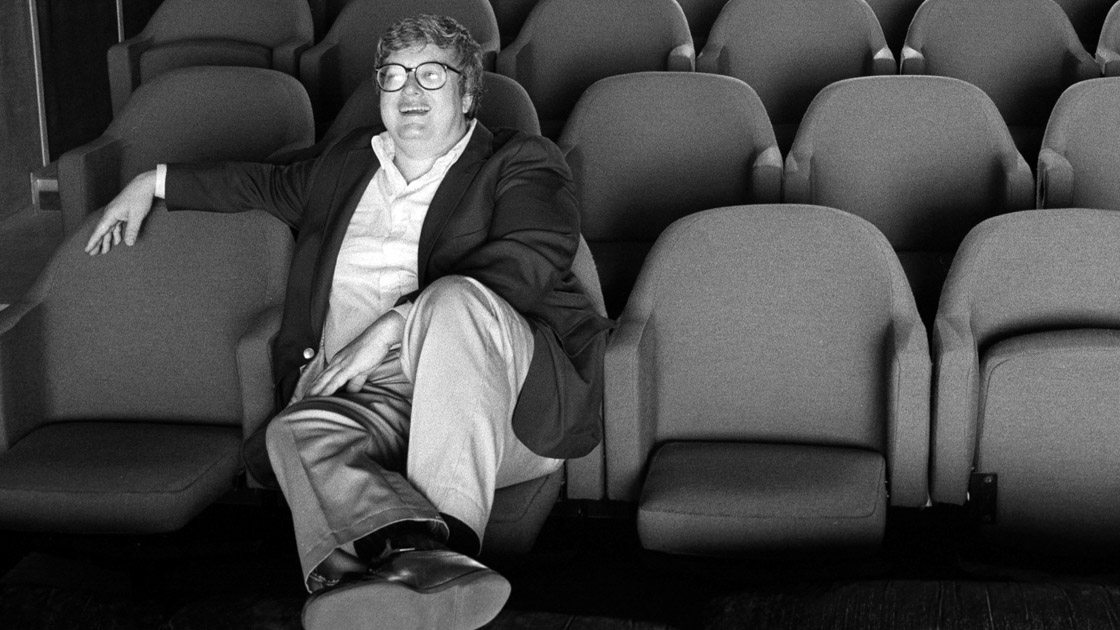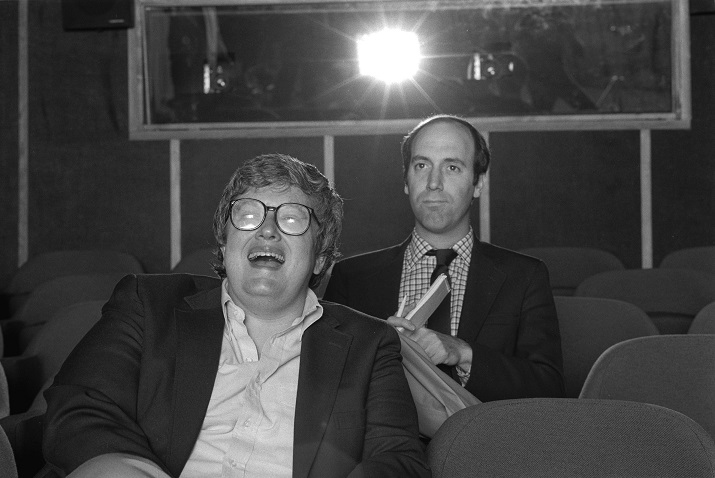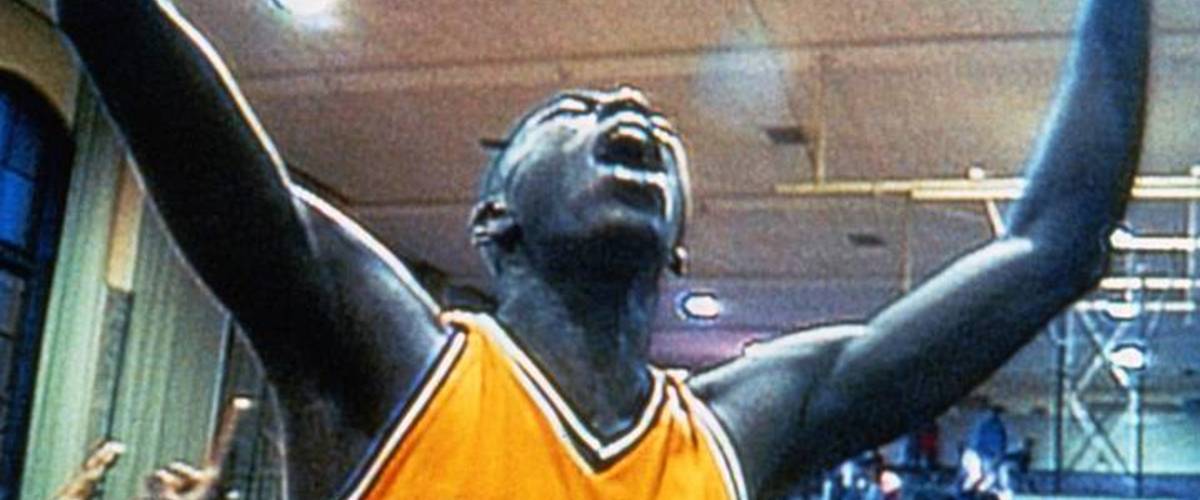By providing your information, you agree to our Terms of Use and our Privacy Policy. We use vendors that may also process your information to help provide our services. This site is protected by reCAPTCHA Enterprise and the Google Privacy Policy and Terms of Service apply.
‘Life Itself’ Director Steve James Explains Why Roger Ebert Deserved a Documentary
Eric Kohn

Everybody knew who Roger was, and the book had already came out, when you committed to this project. But that doesn’t mean he was an obvious subject for a movie. What aspects of this project made you think twice about it?
Well, before I read the memoirs, I was flattered to be asked to consider doing the film, but frankly I was like,”“I don’t know. I admire him as a critic and I love him as a critic and he had a profound impact on my career, but that’s not necessarily a story that I would particularly want to tell.”
I think it was reading his memoirs that was the revelation, because then what you saw was that kind of idea we have about most writers and particularly about critics as people who spend too much time in the dark watching movies and then writing about them — that just did not apply to Roger Ebert. His life was so full and it was a pretty exciting movie life that he was living and he had no idea where it was going, but he was going to enjoy the ride, and he did that in every respect.
That’s what made me want to do the movie: the way in which his life had this extraordinary desire for adventure and then, of course, he did his share of suffering and soldiering on. And all of that informed the kind of critic he became. It informed his reviews. It informed everything about who he was and what we came to collectively love about him.  A lot of your other movies involve long passages of time and many characters. This is really just the portrait of one person and the love of his life. In what ways did it feel different for you?
A lot of your other movies involve long passages of time and many characters. This is really just the portrait of one person and the love of his life. In what ways did it feel different for you?
For me, as a filmmaker, it’s exciting to do something in a different form. The films I’m most known for are narrative-driven portraits following people around in their lives and witnessing what happens to them. In this film, I knew that I wanted to follow Roger around in his present life, and Chaz, and see that. But I wasn’t expecting any particularly dramatic thing to happen. Of course, I didn’t expected he was going to pass away. But I wanted to do it in part because I feel like even small moments, if you can witness them and portray them intimately, often tell a lot about a person. The other thing is that I wanted to use it as a springboard to the past much like he did with the memoir. One of the beautiful things about the memoirs is that he’s looking back over the course of his life through this prism of all that he’s been through in the last six years, and I wanted the film to do the same. In a way, it is this sort of hybrid. It has a kind of rawness of the verite stuff I’ve done in the way we documented those last four months, but it’s also a film about memory and an extraordinary life. In that respect it’s a very different film for me. It’s also about someone famous, and I typically don’t do films about anybody you’ve heard about until you see the movie.  What aspects of Roger’s story were you unable to capture on camera?
What aspects of Roger’s story were you unable to capture on camera?
One of the things that surprised me most about Roger was that, despite all he’s going through, you see in this film over the last four months that he still seems very much to be the Roger Ebert that embraced and loved life from an early age on. With that first shot you see of him in the present part of the story — I purposely wanted to use a shot where he’s asleep and you can see through his jaw, through the bandage, and it’s kind of a sobering shot.
But then you stop and he smiles, and it’s Roger, it’s definitely Roger, it’s the Roger that this film is ultimately about. I think this film, to me, became a love affair on many levels: his love of movies, his love of Chicago, which was very important, his love of writing and his deep love of jazz. It all adds up to why he called his book “Life Itself.” He didn’t call it “My Life in Movies.” There’s no reference to movies in the title of his memoirs because ultimately I don’t think his life was about movies in that way.
 That’s an interesting way of putting it. I also think it allows Roger to be more of a prism to a way of seeing the world, rather than pigeonholing him as a movie lover. Of course, you run the risk of valorizing someone beyond the reality of their accomplishments. I think you did a good job of avoiding that, by threading in Richard Corliss’ criticisms of the show. I’m sure you didn’t want to make a puff piece, but at the same time, you were obviously appreciative of Roger. So how did you skirt that line?
That’s an interesting way of putting it. I also think it allows Roger to be more of a prism to a way of seeing the world, rather than pigeonholing him as a movie lover. Of course, you run the risk of valorizing someone beyond the reality of their accomplishments. I think you did a good job of avoiding that, by threading in Richard Corliss’ criticisms of the show. I’m sure you didn’t want to make a puff piece, but at the same time, you were obviously appreciative of Roger. So how did you skirt that line?
I think it’s fine for filmmaker or biographers to pick something that they don’t like or have a level of admiration for to write those stories or make those films. I’m not a filmmaker that particularly wants to do that with them. If I read his memoirs and I thought, “This guy is kind of a jerk,” I probably would have declined to do the movie. I still would have admired him as a writer but I would have declined to do his movie because I don’t want to just do a movie about a film critic. I wanted to do a movie about the man.
But what I did love about the memoirs is that I admired him, but he also had many sides to him and he had quite a bit of hubris. He could be incredibly humble in a genuine way and he could be kind of full of himself as well, and I think the whole question about what was the impact of the show – this isn’t a film that we’re going to dig really deeply into that, because I wanted to do more than make it about him as a film critic.
But I did feel it was important to put the voice of Corliss and that famous debate they had, and I really appreciate Richard for being candid about his reservations about the show and what it meant because I did think that was an important debate.
 I happen to side more with filmmakers who follow and comment on the importance of the show and what it meant to independent cinema than I do with Corliss. And I do think it’s an important, relevant debate and needed to be in the film. It was interesting when I interviewed Corliss, because I had him read passages from the book, and he was even struck by how harsh his criticism was back then. I think that time has softened his view and not because of the film, but because looking back on that debate and the standpoint of the present, I think he himself even felt in a certain way that — in the grand scheme of things — the show had done more to raise a level of consciousness, particularly among casual moviegoers, and it played an important role in the promotion of smaller films.
I happen to side more with filmmakers who follow and comment on the importance of the show and what it meant to independent cinema than I do with Corliss. And I do think it’s an important, relevant debate and needed to be in the film. It was interesting when I interviewed Corliss, because I had him read passages from the book, and he was even struck by how harsh his criticism was back then. I think that time has softened his view and not because of the film, but because looking back on that debate and the standpoint of the present, I think he himself even felt in a certain way that — in the grand scheme of things — the show had done more to raise a level of consciousness, particularly among casual moviegoers, and it played an important role in the promotion of smaller films.
If you go back and look at the shows and the films they reviewed each week, you will be surprised by just how many films that were not Hollywood films were on that list every week: foreign films, independent documentaries, independent films. I mean, yeah, they definitely covered most of the big Hollywood movies and they should, but it was amazing for a show that had the reach that show had, how much they spent debating and critiquing these other films.
Of course, there were several other iterations of the show after Siskel’s death: Richard Roeper, various guest hosts, A.O. Scott and Michael Phillips, Christy Lemire and Ignatiy Vishnevetsky. You don’t mention any of them in the movie.
I had every intention of at least documenting in some way the show with Roeper, because Roger did the show with Roeper for like seven or eight years. I planned to interview Richard, but what happened was that after Roger died, I started to really try and work with the interviews that I already had done, which ended up being about two-thirds of the interviews that were eventually in the movie. I started to piece together a structure for the movie. When I got to that part of the film where Gene dies, and the decision that Gene and his wife made about how they were going to be very private about the illness, and the impact that decision had on Roger — how it hurt him to be excluded from knowing that diagnosis and how it fueled his own decision to not deal with anything that might befall him in a similar way going forward — I just felt like I had to go from that to delving deeply into what befell Roger. I just felt that was such a strong narrative line of greater importance to spend some time with the show in the aftermath of Gene.
 I know Richard really wanted to be a part of the film and I even sent a note to him explaining why I made the decisions I made and he was very classy about it. But I ended up decided that that was more important to telling the story and that the show with Gene was the significance of Roger’s television film criticism. Everything that followed afterwards really was less important — but I wanted to have a montage with all these imitators. I had a whole montage planned of all the imitators of the show, but I even ended up cutting that. It was quite entertaining to watch.
I know Richard really wanted to be a part of the film and I even sent a note to him explaining why I made the decisions I made and he was very classy about it. But I ended up decided that that was more important to telling the story and that the show with Gene was the significance of Roger’s television film criticism. Everything that followed afterwards really was less important — but I wanted to have a montage with all these imitators. I had a whole montage planned of all the imitators of the show, but I even ended up cutting that. It was quite entertaining to watch.
You mean the different people who were on the show after Roger?
Jeffery Lyons and all those people. Believe me, I could have had an entertaining little montage — you know, a two minute piece about that, but I think when you’re making a film or telling any kind of story, obviously you can’t do everything you set out to do. I’m known for making long films. If I’d made a three-hour film, I could have put all that in, but I really felt like it was important to make some hard decisions about this because there were so many aspects to Roger’s life. The memoirs are 460-odd pages, and it didn’t even dig deeply into the show the way the film does. So there was so much to choose from and I just felt that you have to make hard choices to tell a narrative story.
You’ve had a fair amount of success as a documentary filmmaker, but each new movie represents a unique challenge. This one already seems to have gained more momentum than your last effort, “The Interrupters.” And it’s opening on the 4th of July. What sort of expectations do you have for it?
Well, this film, more so than any film I’ve made since “Hoop Dreams” — that was more of a shock that it became a commercial success, given what it was: a three-hour documentary. But the thing “Hoop Dreams” had going for it back then was that once it was embraced the way it was during its theatrical release. I might have planned a New York or L.A. theater here and there, but a genuine theatrical release was still a very rare thing for documentaries and so that film also benefited from the fact that it was newsworthy simply because it was going to be movie theaters.
 Of course, the landscape has changed dramatically since then. Documentaries in theaters are a dime a dozen theses days, and so for this film to have the kind of commercial prospects it appears to have in this landscape today is due to the fact it’s been well-received. I feel proud of the movie that I’ve made. It’s a good movie. But because it’s about Roger and, in a way, the way he was beloved – I knew he was beloved going into it, but I had no idea how beloved he was until I started making this movie and seeing the response. Clearly part of what made him so beloved wasn’t just his writing about film. It was the bout with cancer and how he handled it and made it public, and not in a “look at poor me” way, but in a way that touched people and moved people to an extraordinary degree. I think all of that is what make this this film a have commercial possibility that none of my other films, except “Hoop Dreams,” have had.
Of course, the landscape has changed dramatically since then. Documentaries in theaters are a dime a dozen theses days, and so for this film to have the kind of commercial prospects it appears to have in this landscape today is due to the fact it’s been well-received. I feel proud of the movie that I’ve made. It’s a good movie. But because it’s about Roger and, in a way, the way he was beloved – I knew he was beloved going into it, but I had no idea how beloved he was until I started making this movie and seeing the response. Clearly part of what made him so beloved wasn’t just his writing about film. It was the bout with cancer and how he handled it and made it public, and not in a “look at poor me” way, but in a way that touched people and moved people to an extraordinary degree. I think all of that is what make this this film a have commercial possibility that none of my other films, except “Hoop Dreams,” have had.
By providing your information, you agree to our Terms of Use and our Privacy Policy. We use vendors that may also process your information to help provide our services. This site is protected by reCAPTCHA Enterprise and the Google Privacy Policy and Terms of Service apply.















